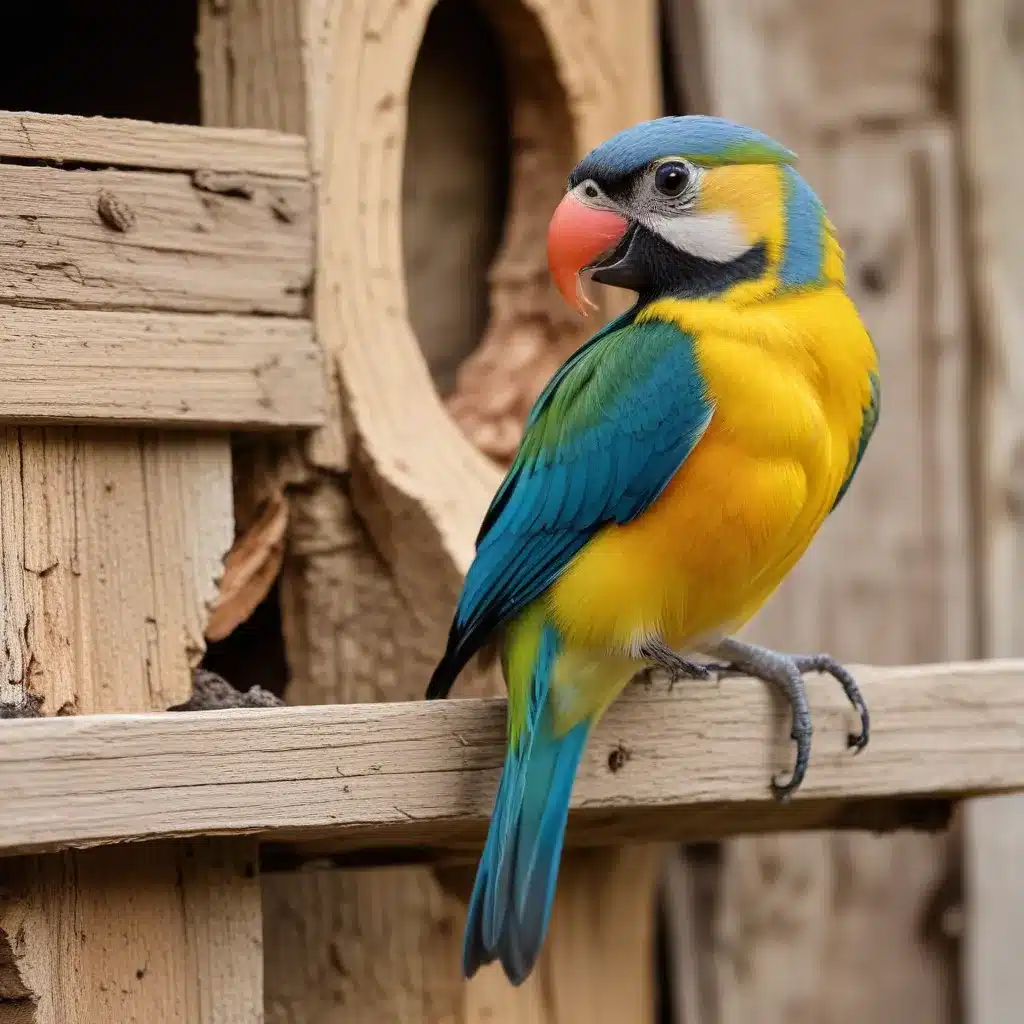
Avian Behavior and Socialization: Integrating Rescued or Abandoned Birds into Homes
As an experienced avian caretaker and expert in the field, I’ve had the privilege of working with a wide variety of bird species – from the vibrant plumages of macaws and cockatoos to the charming personalities of cockatiels and budgies. Each feathered companion brings unique behavioral traits and socialization needs that require careful consideration when integrating them into a new domestic environment.
Avian Species and Characteristics
Common Companion Birds
Among the most popular companion birds are parrots, parakeets, cockatoos, macaws, and conures. These intelligent, social creatures form strong bonds with their human flock and require ample interaction, enrichment, and specialized care to thrive. Parrots, in particular, are renowned for their complex cognitive abilities, problem-solving skills, and ability to mimic human speech – making them incredibly rewarding yet challenging pets.
Unique Behavioral Traits
What sets birds apart from other companion animals is their innate drive for flight, flock dynamics, and heightened sensitivity. Birds are highly perceptive creatures, constantly reading cues from their environment and those around them. A rescued or abandoned bird may exhibit increased wariness, aggression, or withdrawal as a result of past traumas or lack of proper socialization. Understanding these nuanced behaviors is essential when welcoming a new avian family member.
Rescue and Rehabilitation Process
Assessing Behavioral Needs
When rescuing or adopting a bird, the first step is to carefully assess its current state of socialization and any potential behavioral challenges. This may involve observing the bird’s interactions with humans, its response to handling, and its overall demeanor. Determining whether the bird is a friendly “stray” or a more wary “feral” individual will guide the rehabilitation approach.
Preparing Rescued Birds for Rehoming
Once the bird’s needs have been identified, the rehabilitation process can begin. This may involve gradual desensitization, positive reinforcement training, and providing a stress-free, enriched environment to help the bird regain its trust and confidence. Patience and consistency are key, as progress can be slow but steady. The ultimate goal is to prepare the bird for a successful, lifelong integration into a loving forever home.
Integrating Birds into Domestic Environments
Habitat and Enrichment Considerations
Creating a safe, stimulating, and species-appropriate habitat is crucial for a bird’s well-being. This means providing ample space, varied perches, foraging opportunities, and toys to encourage natural behaviors like climbing, chewing, and flighted exploration. Introducing new objects and experiences gradually can help ease a rescued bird’s transition into a domestic setting.
Establishing a Positive Bond
Building a strong, trusting relationship with a rescued or abandoned bird requires time, patience, and a deep understanding of their communication and social cues. Offering positive reinforcement through treats, affection, and engaging interactions can help the bird feel secure and valued within its new human flock.
Socialization and Behavioral Training
Positive Reinforcement Techniques
When it comes to training and modifying behaviors in rescued birds, the use of positive reinforcement is essential. This approach, known as the LIMA (Least Intrusive, Minimally Aversive) Hierarchy, focuses on rewarding desired behaviors rather than punishing undesirable ones. By making training a positive, enjoyable experience, birds are more likely to enthusiastically participate and exceed expectations.
Addressing Maladaptive Behaviors
Some rescued birds may exhibit challenging behaviors, such as aggression, feather plucking, or excessive vocalizations. These maladaptive behaviors often stem from past traumas, inadequate care, or a lack of proper socialization. By addressing the underlying causes through environmental enrichment, positive reinforcement training, and patience, caregivers can help these birds overcome their difficulties and develop healthier coping mechanisms.
Dietary and Nutritional Considerations
Species-Specific Feeding Requirements
Providing a balanced, species-appropriate diet is crucial for a bird’s overall health and well-being. Each avian species has unique nutritional needs, and a rescued bird’s diet may need to be carefully evaluated and adjusted to ensure it is receiving all the necessary vitamins, minerals, and macronutrients. Consulting with an avian veterinarian can help guide the transition to a suitable feeding regimen.
Maintaining Optimal Health
Proper nutrition not only supports a bird’s physical health but also plays a significant role in its behavioral and psychological well-being. A well-nourished bird is more likely to exhibit natural, engaging behaviors, reduce stress-related issues, and maintain a strong immune system to fight off potential illnesses.
Ongoing Care and Monitoring
Veterinary Support and Checkups
Partnering with an experienced avian veterinarian is essential for the long-term care of a rescued or adopted bird. Regular check-ups, preventative care, and prompt treatment of any health concerns can help ensure the bird’s optimal well-being and minimize the risk of future complications.
Troubleshooting Behavioral Challenges
Even with the best efforts, rescued birds may continue to face behavioral challenges as they adapt to their new environments. Staying vigilant, monitoring progress, and seeking guidance from avian behavior experts can help identify and address any emerging issues before they become more deeply ingrained. Patience, creativity, and a willingness to learn are key to successfully integrating a rescued or abandoned bird into a loving, forever home.
At Mika Birds Farm, we are committed to providing comprehensive support and resources for avian enthusiasts and caregivers. Whether you’re considering rescuing a bird or are already the proud parent of a feathered companion, our team of experts is here to help you navigate the joys and challenges of avian care. Visit our website to explore our blog, product offerings, and expert consultations tailored to your specific needs.


